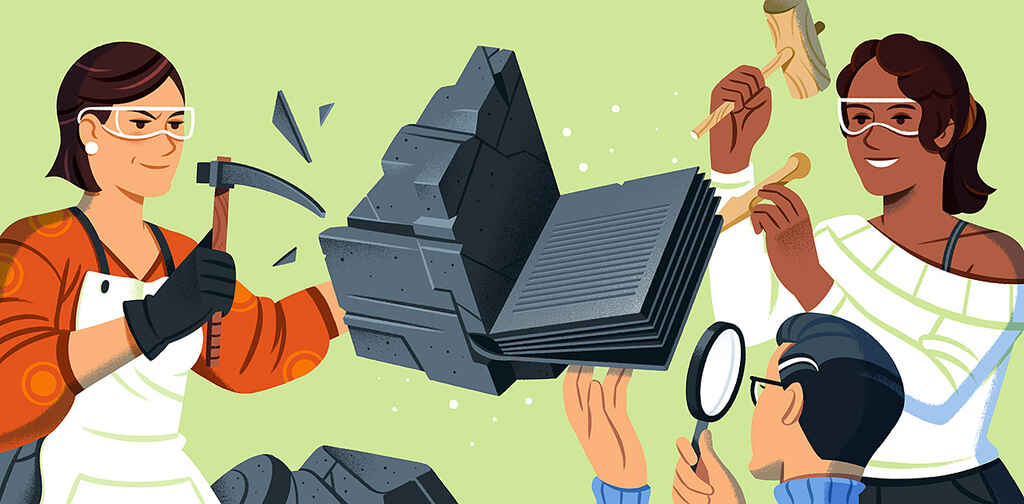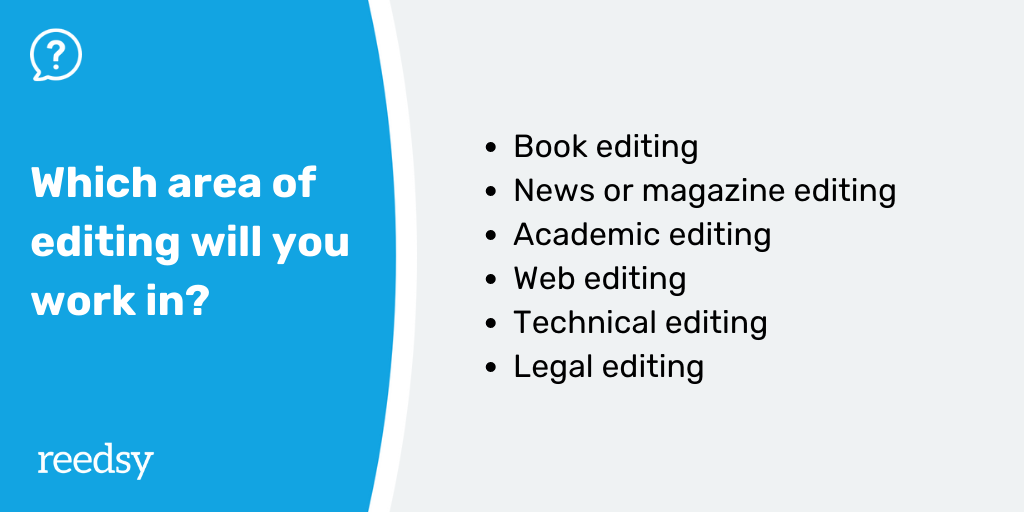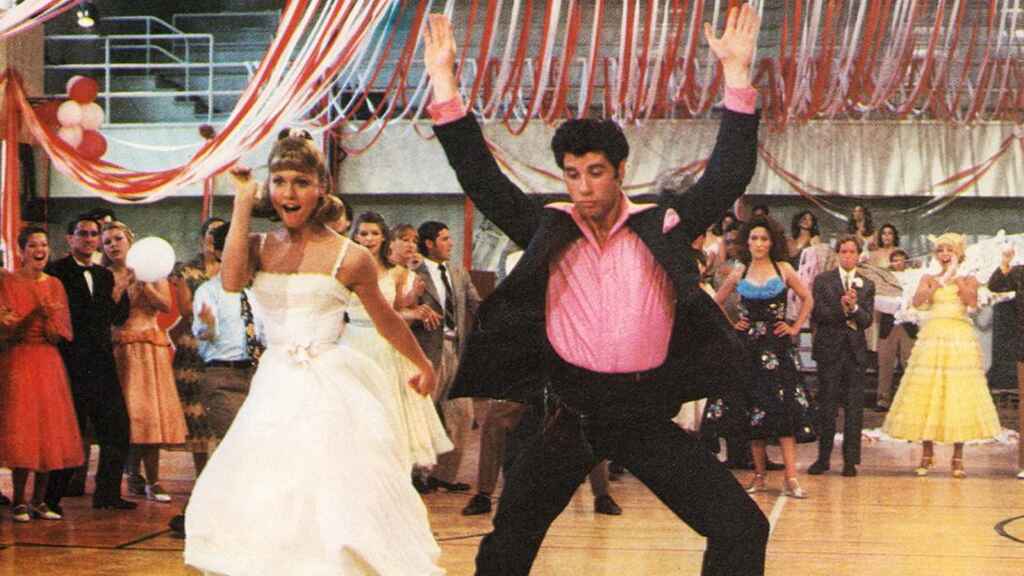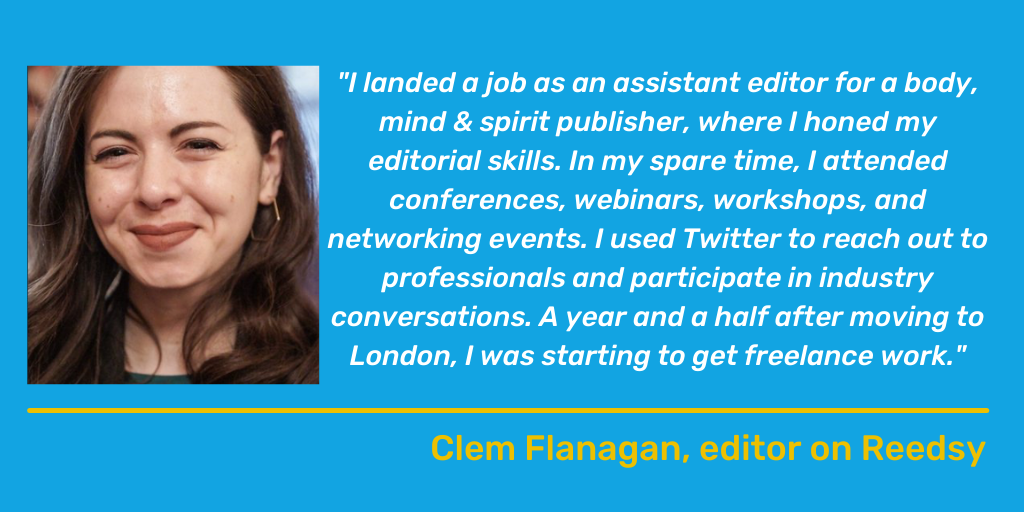What Does It Take to Be an Editor
Whatsoever procedure that results in published writing involves an editor, which is why they form fundamental parts of several industries. If yous've got an impeccable agreement of grammar and a discerning eye when it comes to identifying structural and conceptual flaws in a piece of writing, read on to notice out how to become an editor yourself.
What does an editor exercise?
Editors plan, coordinate, and revise pieces of writing and so that they are ready for publication as books, newspapers, blogs, magazines, or even advertising material. They review and polish the content, structure, and prose of each piece to ensure its clarity and consistency.

The verbal duties of a professional editor differ in each industry, with many extraneous tasks attached to the function in each field. Every bit we wait at how someone might showtime a career in editing, we'll learn more than about the sheer multifariousness of editing work — so let's get started!
🤓 Curious about how much money an editor makes? Head to our post on editor salaries for more information.
How to become an editor in 5 life-irresolute steps
If y'all desire to help writers in bringing their ideas to life, here are five simple steps to follow to become a professional editor:
1. Choose your blazon of editing

It ever helps to beginning by pointing your career in a direction: an expanse of publishing you would like to work in. Equally with every career, you never know where y'all might really end upwardly, but knowing the options and picking a lane tin can assistance you better gear up yourself in terms of qualifications and job searching.
Here are the major types of editing that might be suited to someone with your skill and dedication:
Book editing
A book editor works closely with writers to revise and streamline their manuscripts ahead of publication. This involves various levels of editing, from developmental editing to re-create editing and proofreading, the latter 2 of which are often done on a freelance basis, through commissions from publishers or authors themselves.
Aside from editing text, an editor working at a publisher is also responsible to communicate with literary agents and authors, coordinate with other departments like marketing, design, and publicity, commission new titles, and perform routine authoritative tasks such equally writing encompass blurbs, updating book metadata, and more.
💡Task titles: editorial assistant, assistant editor, editor, senior editor, commissioning editor, editorial director (note: these particular roles are listed from bottom to superlative of the ladder order)
News and magazine editing
A news or magazine editor is responsible for proofreading and structurally editing articles, fact-checking, ensuring consistency with the publication's house style and relevance to the publication's aims or themes (if any), commissioning manufactures from regular contributors, responding to pitches, and reporting to the publication's editorial board. Sub-editors commonly just piece of work on editing text, and do not accept any commissioning/managerial duties, whereas department editors develop the strategy and management of their section and report to direction.
💡 Task titles: section editor, associate editor, sub-editor, editor
Academic editing
Unsurprisingly, academic editing belongs to the sphere of academic output, then it's usually a position held by someone with an academic groundwork. This can be a full-time, in-firm position at an academic publisher (east.one thousand. Oxford University Press) or a voluntary, function-time contribution as a journal editor. Structural and copy editing are certainly important, just across that, these editors ensure academic rigor and upstanding academic do. The latter involves checking for plagiarism, fact-checking, verifying bibliographical data, or arranging for the creation of an index. Academic editors are as well expected to coordinate the peer-review process and communicate feedback to authors.
💡 Job titles: academic editor, journal editor
Web editing
A spider web editor is responsible for managing an organisation'southward digital content. The specifics will vary, merely typical duties include editing articles or blog posts for publication, commissioning or assigning new pieces of content, deciding on subjects to be covered, using Search Engine Optimization (SEO) all-time practices to attract organic traffic, making decisions most how posts are presented, as well equally promoting said content on social media (or collaborating with social media marketers).
💡 Job titles: web editor, content editor, content managing director, blog director, caput of content
Technical editing
A technical editor is not so concerned with grammatical correctness or fluency of expression: their main focus is to ensure that highly technical information is accurate and communicated clearly. For this reason, technical editors with expertise in the discipline matter at hand are usually hired to apply their knowledge to a piece of writing. From checking that any equations and graphs are accurate to ensuring information complexity meets the knowledge level of the intended audience, a technical editor operates equally a subject matter consultant.
💡 Job titles: technical editor, subject area-matter proficient (SME)
Legal editing
Legal editing involves working with writing in a legal context. Whether responsible for a particular legal organization's output or an in-house editor at a legal publishing company, a legal editor'due south job is not vastly different to that of a technical editor: the primary aim is to ensure accuracy and compliance with the aims of the publication at hand. A legal editor may besides be responsible for compiling "digests" of court cases, researching legal bug, or analyzing legal news or developments.
💡 Chore titles: legal editor, legal researcher, legal reporter
2. Get a caste or editing certificate

In a field that'south inundated with aspiring editors, y'all'll typically demand some relevant qualifications. These may come in several forms.
Available's degree
Nowadays, a available'south degree is more or less required to pursue an editing career, especially if you desire to offset in publishing houses. There are no specialist editing degrees, just many writing-heavy programs that can give you a good stepping stone to the profession. Most editors hold an undergraduate degree in a related subject field such equally English, Journalism, Communications, or even Constabulary, if you lot hope to become a legal editor.
That said, a bachelor's caste in an entirely irrelevant subject can still be very useful. Employers mainly want to know that you have the work ethic and capabilities to handle a lot of text and organize yourself. You lot can e'er larn technical editing skills later using books on editing written by experienced professionals, or enroll yourself in one of the following courses.
Postgraduate degree
In recent years, there has been a growth of publishing-specific postgraduate degrees for you to choose from. Universities are unlikely to offer degree courses exclusively dedicated to editing, but there are Master's degrees in Publishing and Artistic Writing which tin give you a ameliorate understanding of the product chain and the writing arts and crafts.
Of grade, a postgraduate degree is rather a big delivery, and information technology'southward not at all a prerequisite — many editors do non have postgraduate degrees, and build their craft through shorter courses or piece of work experience instead.
Other qualifications
Beyond getting all that college education, there are still loads of short-term courses on re-create editing, journalism, or publishing that you lot can take. There are enough of proofreading courses or short-term editing programs that provide a certificate that tin can teach you technical skills and boost your CV.
three. Utilise to publishing internships and small freelance gigs

In an ideal globe, you'd immediately find an entry-level position equally an editorial assistant. But despite being considered entry-level, these positions usually require some prior date or experience with editing or writing. You may be able to nab one of these coveted roles if your CV contains relevant extracurriculars (such as being a student reporter or editor) simply many aspiring editors first out by securing work feel, an internship, or office-time editing experience. What these depression-paying opportunities practice offer, all the same, is a take a chance to go used to the workflow, hone your editing and advice skills, build your network, and grow your editorial portfolio.
Freelance editor Clem Flanagan tells u.s. that her years working in entry-level positions were crucial in forging her network. The community is tight-knit and supportive, and nearly editors are happy to refer writers to fellow professionals who are either more experienced or looking for gigs. Authors themselves often recommend editors to their writer friends, and then you should never underestimate the ability of give-and-take of rima oris. You may starting time small, but build that reputation steadily and it'll pay off.
Employ the internet to your advantage
To find book editing internships, cheque Indeed, LinkedIn and, if you're still in school or recently graduated, your higher's job search portal. Information technology's besides worth getting involved in Twitter — at least as a reader. Managing editors and publishers tweet about vacancies and networking events all the fourth dimension!
If you can't discover (or tin can't afford) to accept an internship, look for short-term gigs on freelancing sites. Do notation that, even with a compelling profile and plenty of cocky-marketing, yous'll probably accept to take jobs that don't really interest yous at first. For instance, yous might plan to specialize in developmental book editing, but you might find yourself copy editing blogs and academic essays to commencement with.
This function of your editing career is the definition of "the hustle." Yous'll be working long hours, not getting paid much, and probably feeling frustrated. Merely if you tin can button through all that, yous'll emerge on the other side with the kind of cognition and feel you can build a more sustainable career on. Hang in there!
iv. Seek senior editing opportunities

With experience, yous'll start noticing where your natural skills prevarication and what you enjoy doing the most. So while you're working on a diverseness of projects, you lot should be thinking about what kind of editor you'd similar to be downward the line. Even if y'all aren't fix withal to move into a new office, keep your optics open (read: your Twitter lurking skills) for new opportunities. Read through task descriptions for editorial roles within your industry and beyond it, and make a note of whatsoever recurring requirements, such equally familiarity with specialist software or Search Engine Optimization.
You tin can then take steps to build the necessary skills to condign a amend editor in your gratis time or within your current role, with a view to transitioning to a different job. For case, an editorial banana for the Lifestyle section of a magazine could observe their way into nonfiction book publishing via a Lifestyle imprint that publishes health and nutrient and drink titles. And if you're happy with the niche y'all're in, the ladder-climbing begins. Alternatively, y'all can look into becoming a freelance editor on Reedsy to do more control over your work days.
five. Grow your network
Bold you've now got substantial editing experience, yous'll have naturally accrued some contacts in your industry, online or in real life. From literary agents to journalists, academics, and creative directors, you'll know a proficient number of people in different positions within your field. And you might not realize it at first, but sub-fields of professional activity in a detail city, region, or fifty-fifty country (looking at UK book publishing) are a small globe, where you'll meet the same people throughout your career.

Then be nice. Respond to strangers' requests politely and thoughtfully, even if yous want to decline. Innovate people who might similar to work together to each other. Recommend hard workers. Put in a good word for entry-level assistants when you lot've progressed to a more senior level. Care for interns with patience and respect. Send people job opportunities you happen to see that they may be interested in. All of this, in other words being a kind, respectful, and decent person to work with, will help you in more means than you can imagine.
This may not come in the form of a task offer divinely descending upon y'all from the heavens. But it'll piece of work in tranquility ways that lead to people treating you well and taking you seriously, also as giving you a nice boost of adept karma as your career progresses.
Down the line, who knows what you'll accomplish? A project you've worked on might merely end upwards making the bestseller lists, or winning a Pulitzer Prize. 1 thing is for sure: if y'all've always wanted to make your mark in the world of culture, becoming an editor is an amazing way to practice that.
Source: https://blog.reedsy.com/freelancer/how-to-become-an-editor/